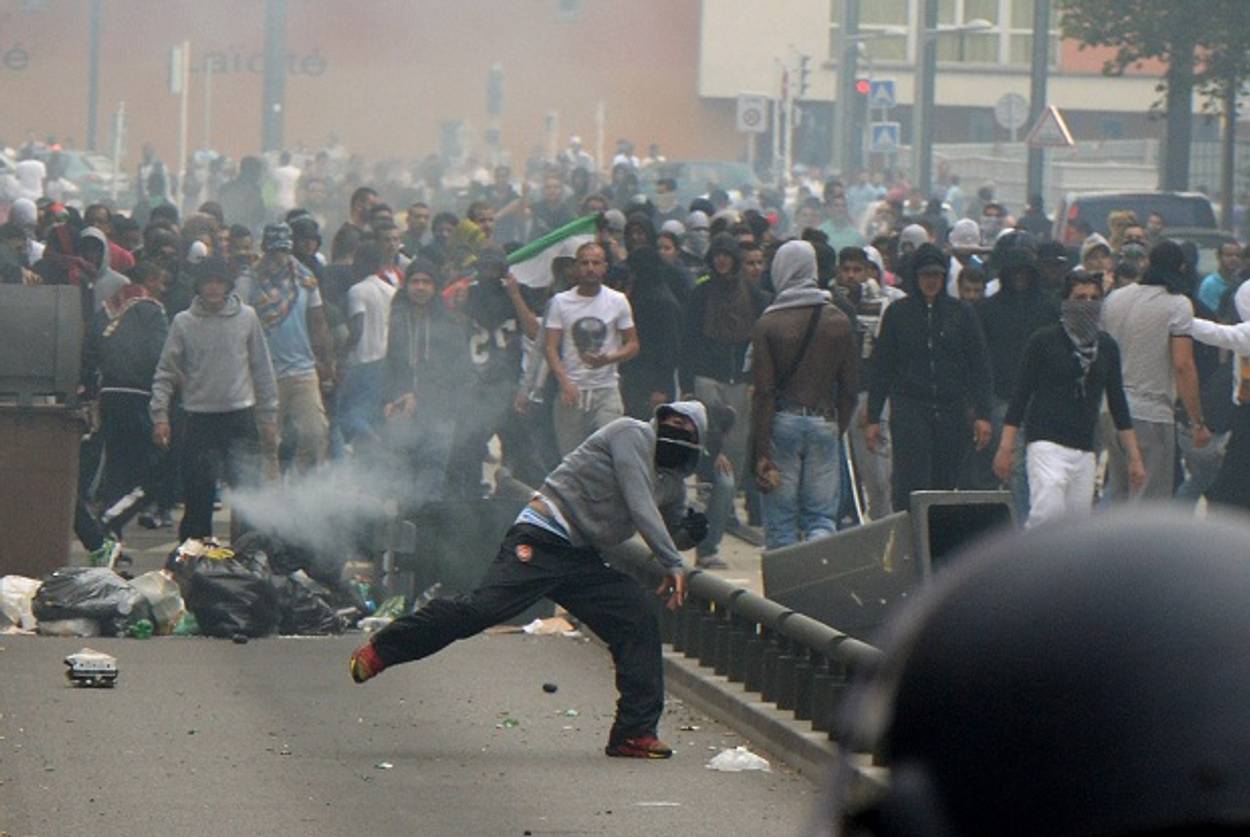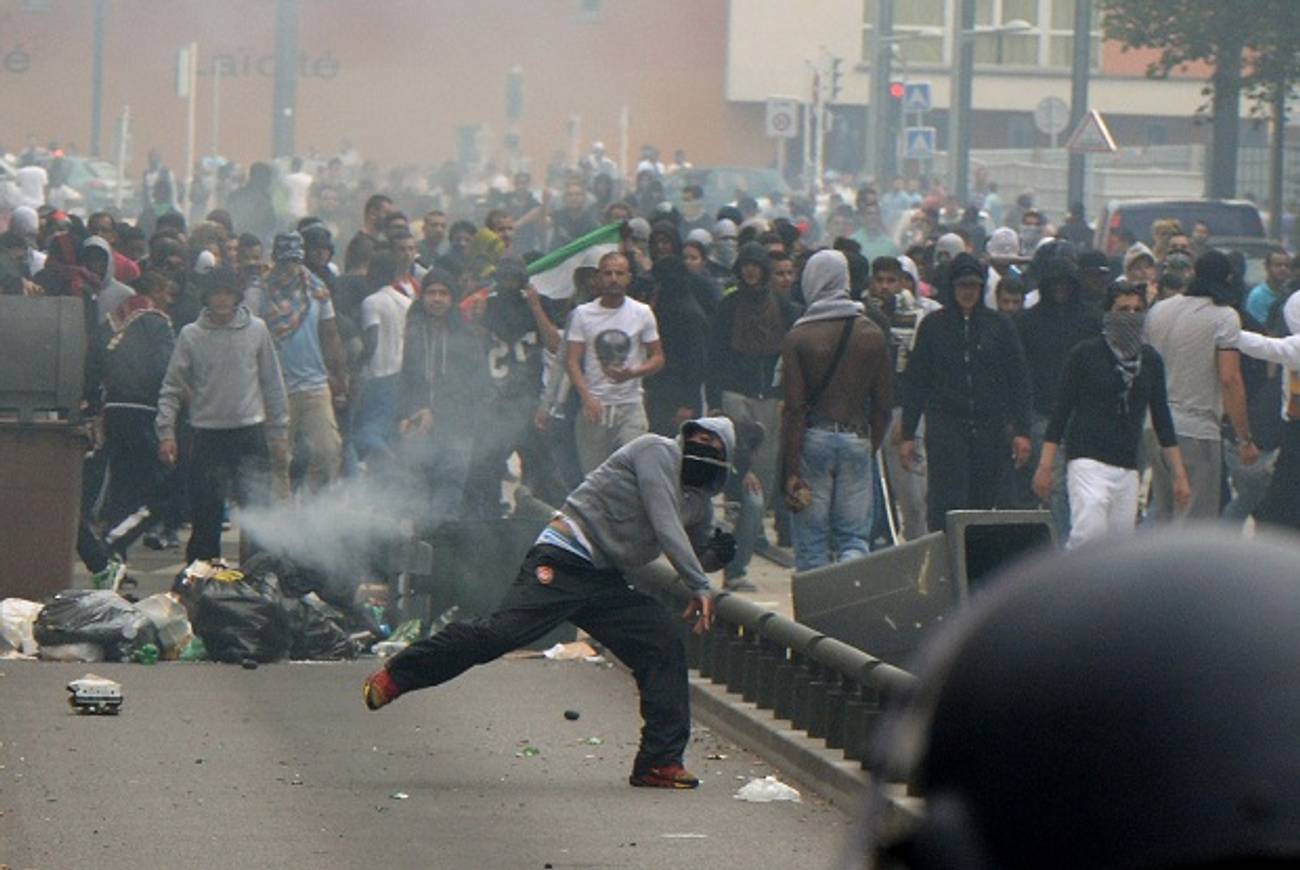Why Europe Has Trouble Fighting Anti-Semitism
Three reasons it has difficulty facing up to anti-Jewish hate




Anti-Semitism is on the rise in Europe. Public expressions of Jew-hatred tend to spike when Israel is at war, but this round has been exceptionally nasty. In France, pro-Palestinian demonstrations have descended into full-blown riots and pogroms, with synagogues firebombed and Jewish neighborhoods ransacked; German streets have been filled with cries of “Jews to the gas!”; and abuse on social media has simply been too rife to quantify.
European leaders have begun to understand the gravity of the crisis. The German, French, and Italian foreign ministers have issued a joint declaration condemning anti-Semitic rhetoric and attacks. Leading German tabloid Bild ran the headline “Never Again Jew Hatred!” last week, featuring denunciations from leading public figures. And the French government took the extraordinary step of attempting to ban several pro-Palestine rallies for fear of further eruptions of violence.
But across Europe’s vestigial Jewish communities, there is a sense that non-Jews just don’t get it. After all, none of this is new. Indeed, the heightened security around synagogues and Jewish schools is so commonplace that Jews have become accustomed to it. In France, public displays of anti-Semitism—and acts of violence—were on the rise long before this latest Gaza war. So, why is anti-Semitism overlooked by many Europeans until it explodes into view at moments like these? There are three key reasons.
Firstly, Jews have integrated very well into the establishment. In Britain, the leader of the opposition, the speaker of the House of Commons and the president of the Supreme Court are all Jews. It is hard, in this context, for many to perceive of this bourgeois minority as a “minority” at all, much less as victims of prejudice. It is as if the Jews, subsumed into the “Judeo-Christian” fabric, have nothing to fear because they have finally made it.
But this perception is based on ignorance of Jewish history. Anti-Semitism has historically coexisted with Jewish flourishing, often because of, not despite, Jewish integration into the establishment. Frequently, anti-Semitism is not based on perceptions of Jewish weakness, but power. This is one characteristic that makes it unique. Jewish prosperity has historically blinded people to the fragile foundations on which it rests and the explosive dangers underneath. Thus, Iraq’s Jews used to form the backbone of their country’s economy, but they were still chased out by a tide of popular anti-Jewish revulsion. Across the Arab world, anti-Semitism was fueled by a perception of the Jews as being in league with the colonial powers—a trend that still continues, as Jews are associated with Israel, and Israel with imperialism.
The second reason European anti-Semitism often goes unremarked upon is that this upsurge of prejudice is coming not only from the nationalist far right, but also—at the risk of political incorrectness—from Muslim quarters. Mehdi Hasan, Britain’s most prominent Muslim journalist, has called the “virus” of “routine and commonplace” anti-Semitism the “dirty little secret” of British Muslims. And the riots in France have been predominantly the work of North African immigrants.
This fact complicates efforts to tackle anti-Semitism, because it involves extremists from one minority preying on another. It would be unthinkable for a mainstream politician to say that Muslims “as a community … do have a ‘Jewish problem’” (Mr. Hasan’s words exactly). Combatting this hatred requires recognising uncomfortable facts about its provenance, but politicians are loathe to single out a minority for public criticism—especially not one that is itself targeted by the far-right, and one that far outnumbers the smaller Jewish minorities. The problem is exacerbated by the aforementioned perception of Jews as members of the establishment: any attempt to address Muslim anti-Semitism specifically might be interpreted as a witch-hunt by “powerful Jews,” further entrenching the usual stereotypes.
In effect, then, Europe’s Jews are paying the price for the continent’s failure to effectively integrate its immigrant communities. It is hardly surprising that the banlieues of Paris—the home of many North African immigrants—are hotbeds of anti-Semitism if, according to the ADL’s recent study, 80-87 percent of Maghrebi Arabs are bona fide anti-Semites.
Thirdly, the increasingly thin line between anti-Zionism and anti-Semitism means that anti-Semitism can be difficult to identify, concealed behind “anti-Israel” rhetoric. Accusations of anti-Semitism are often met with the riposte that Jews are just “crying anti-Semitism” to silence criticism of Israel. And Jewish anxieties about the recycling of classically anti-Semitic motifs might come across as a bit paranoid for those unaware of the depressing continuities in Jewish history and anti-Jewish hate.
Anti-Semitism will continue to bedevil Europe until people understand what it is and where it is coming from. Until then—well, perhaps the exodus of 1 percent of French Jewry this year to Israel is a harbinger of things to come.
Related: France’s Toxic Hate, our five-part series on growing anti-Semitism in France.
Eylon Aslan-Levy is an Israeli news anchor and political commentator. He is a graduate of Oxford, Cambridge and the IDF.